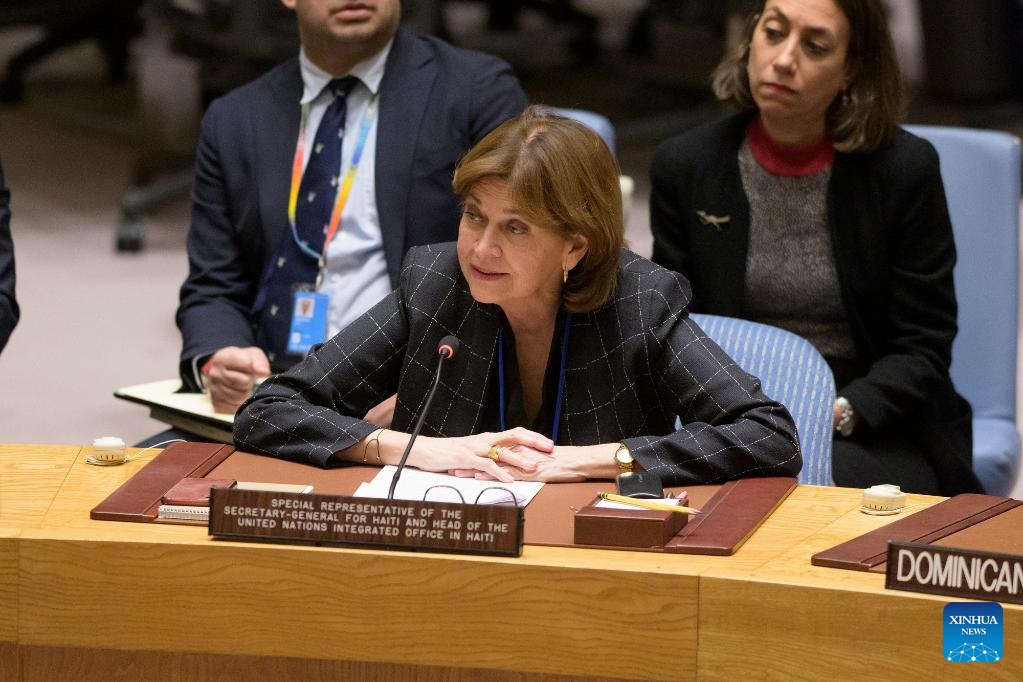UNITED NATIONS, Jan. 24 (Xinhua) — The top UN envoy for Haiti on Tuesday said the Caribbean nation is facing protracted security and humanitarian crisis, while describing the signing of a national consensus agreement and the approvement of sanctions regime by the Security Council as two positive developments.
Gang-related violence in Haiti has reached levels not seen in decades, with murders and kidnappings increasing for a fourth consecutive year, Helen La Lime, the UN secretary-general’s special representative and head of the UN Integrated Office in Haiti, told a Security Council open briefing on Haiti.
A total of 1,359 kidnappings were recorded in 2022 in Haiti, more than doubling in 2021, averaging roughly four per day. And 2,183 murders were reported in 2022, up by a third since the previous year, touching near all segments of society, she said.
Close to five million people are facing conditions of acute hunger across the country, and while 90 percent of schools are now operating, thousands of children, especially those living in gang affected areas, are yet to start the school year, she added.
On Dec. 21, 2022, a broad spectrum of political figures, civil society organizations, religious authorities, trade unions and the private sector in Haiti signed the National Consensus Agreement for an Inclusive Transition and Transparent Elections.
“The agreement, whose adherents are growing every day, is indeed the most promising sign to emerge from dialogue efforts until now,” La Lime said, noting that the agreement is “by no means a done deal.”
In addition to the consensus agreement, she listed the adoption of Resolution 2653 by the Security Council as another key development for Haiti.
The resolution, unanimously endorsed by the 15-member council on Oct. 21, 2022, established sanctions measures on those supporting criminal activities and violence involving armed groups in Haiti.
Such sanctions measures are creating space for additional political dialogue and necessary reforms in Haiti, La Lime said.
She voiced support for the deployment of an international specialized force to Haiti, without which, she said the positive effects of the political process and the sanctions will “remain fragile and vulnerable to being reversed.”
Security Council members so far hold differing views on the deployment of such a force, with some calling for treating it with caution and taking into account of different opinions within Haiti. ■













